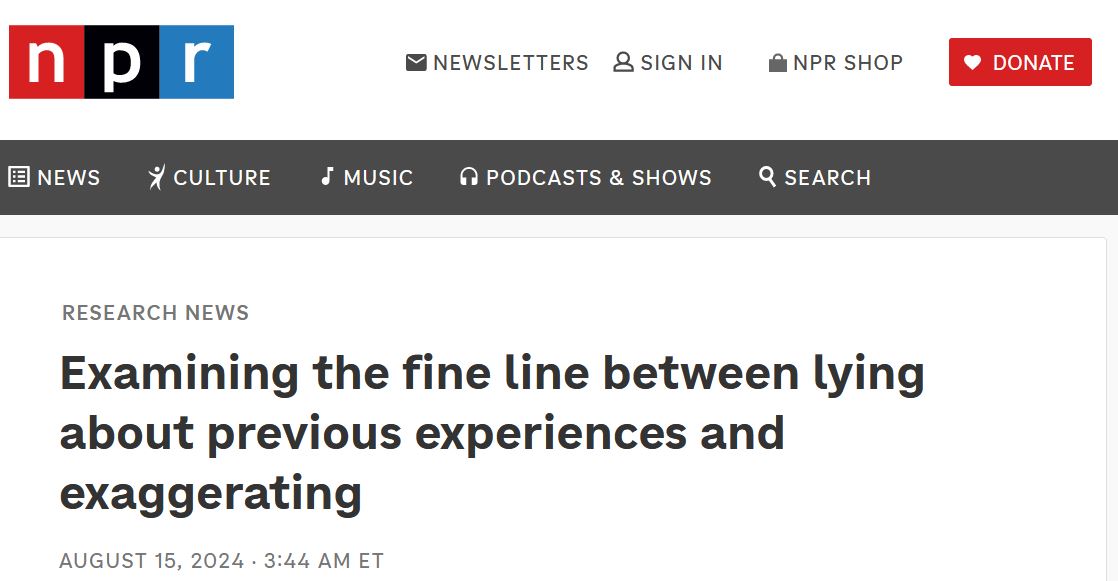
A week before Operation Desert Storm began, I flew to Madrid to start a year-long temporary foreign service assignment. This was 1991, a few years before the World Wide Web was operational. I didn’t speak Spanish, and because this was only 16 years after Spain was run by a nationalist dictator, Spain didn’t speak English.
The Vetrotex project manager, Jose, and lead software engineer, Isabel, were fluent in English, so I could do my job, but those were the only two people, in-country, to whom I could have an effortless conversation. English wasn’t spoken anywhere else. [The situation gradually improved, I adapted, Spaniards are delightful]
That put me in a linguistic deprivation that was an ongoing struggle. This is to explain why I was so thankful to find that the NPR programs, Morning Edition and All Things Considered were broadcast on Voice of America over shortwave radio. I’m not a religious fella, but I said a little prayer to thank God for this connection to the USA.
I don’t know what it is about those two shows that make them so comfortable and relaxing. NPR has always been liberal, but they believed that they were even-handed. When NPR made the explicit decision not to cover the Hunter Biden laptop story in order to help get Biden in 2020, they lost their credibility and integrity.
Some mornings, I listen to Morning Edition to get lulled back to sleep. Even half-asleep, I internally smirk at their ham-handed bias. This August 15th piece on the difference between lying and exaggeration, is propaganda. A fair listener of any political belief can see what they did.
Walz is running as the Democrat VP candidate, Trump is the Republican presidential candidate. The background of the incidences aren’t relevant, pay attention to the NPR host, Steven Inskeep as he doesn’t say anything demonstrably false, but isn’t honest either. That’s what makes it propaganda.
Here’s an excerpt from the start of the report:
STEVE INSKEEP, HOST: I don’t mean to shock you, but when politicians tell a story, they may not always tell the absolute truth. Democratic vice presidential candidate Tim Walz faced criticism when he talked about regulating assault weapons.
(SOUNDBITE OF ARCHIVED RECORDING)
TIM WALZ: We can make sure we don’t have reciprocal carry among states. And we can make sure that those weapons of war that I carried in war is the only place where those weapons are at.
(CHEERING)
INSKEEP: Walz got in trouble for saying he carried weapons in war. During 24 years in the National Guard, he did carry weapons and was deployed overseas during a war but not in a war zone. The campaign says Walz misspoke.
On the other ticket, former President Trump recently gave a news conference where NPR counted 162 false claims, exaggerations, unlikely predictions and much more. The truth is many human beings improve the stories they tell. So we called Holly Cole, a psychologist at Wesleyan College who studies our relationship with the truth.
A soundbite of Walz is provided, and it accurately captures the controversy. Inskeep ends with, “The campaign says that Walz misspoke”. NPR gave one specific example, presents the response from the Walz organization and doesn’t characterize the statement as a lie or an exaggeration.
On the other ticket, Inskeep says, “Trump recently gave a news conference where NPR counted 162 false claims, exaggerations, unlikely predictions and much more.”
Not a single false claim is presented and the Trump campaign is not asked to respond.
Parse Inskeep’s statement carefully, assuming it is true. There could be one trivial false claim, one mild exaggeration, one debatable prediction and 159 other factual, relevant and persuasive statements in the “much more” category. The “much more” category can’t be defended in a statement with a precise count.
Bill Nye, the Science Guy, used to say, “Extraordinary claims require extraordinary proof.”
Inskeep doesn’t specify which news conference or link to the transcript as I have done for him. Inskeep’s extraordinary claim can’t be verified. That is enough to doubt his integrity.
The wording of Inskeep’s statement is intentional. The sentence fragment, “NPR counted 162 false claims” is meant to be the takeaway from the report. There is a chance that I will hear that line from a Progressive friend, and when I ask for one example of a false claim, will be met with a confused expression as Progressives don’t expect to be met with a critical response.
This uncharitable parsing of Inskeep’s report may seem unreasonable. Inskeep has been with NPR for 27 years, and as referenced, in 2020, NPR surrendered it’s journalistic integrity. It’s unlikely that Inskeep thrived at NPR without being complicit.
To paraphrase Inskeep’s opening statement in the report. I don’t mean to shock you, but when partisan journalists tell a story, they may not always tell the absolute truth.